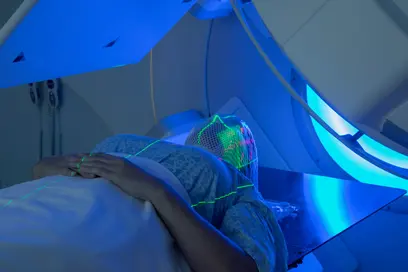Colorectal cancer is the third most common cancer in the world. Researchers currently assume that the disease is 35 percent hereditary. The main risk factors include a family history of the disease. In recent years, researchers have also identified around 100 tiny gene variations that are widespread in the population (single nucleotide polymorphisms - SNPs) and that affect the risk of colorectal cancer. However, current results obtained by the DKFZ scientists led by Hermann Brenner and Korbinian Weigl suggest that these SNPs account for a considerably lower share of the higher familial risk of colorectal cancer than previously assumed.
The DKFZ researchers began by examining the standard statistical methods used to estimate this share and noticed a number of weaknesses in the calculation which, when aggregated, lead to the impact of the SNPs being considerably overestimated. “In particular, the standard methods currently used assume that the familial clustering is ultimately 100 percent hereditary,“ noted Korbinian Weigl, lead author of the study. “On that basis, they then calculated the percentage that can be accounted for by the gene variants known to date.“
The team led by Brenner and Weigl evaluated data on 7,927 subjects in a case control study, including 4,447 patients with colorectal cancer and 3,480 healthy subjects in the control group. “We developed a new method of calculation that does not assume right from the start that the familial risk is completely genetic in nature,“ explained study director Hermann Brenner. The researchers then used this method to evaluate the data on their probands.
The influence of the SNPs was indeed considerably lower using this method than assumed. While previous calculations estimated that the currently known gene variants account for 9.6 to 23.1 percent of the higher familial risk of colorectal cancer, the new calculations by the DKFZ researchers found an estimated influence of the SNPs of between 5.4 and 14.3 percent.
“The results correlate very well with the results of a different DKFZ study published last year,“ Brenner remarked. The previous study showed that in half-siblings of colorectal cancer patients, the risk of developing cancer was the same as for “real“ siblings. “That suggests that common risk factors, such as particular dietary habits, smoking, or a lack of exercise, play a considerably greater role than previously assumed.“
For the future assessment of the individual risk of colorectal cancer, that certainly does not mean that the gene variants associated with a heightened risk have become meaningless, however. “Instead, our study shows how important it is to look at both genetic and other risk factors in the family to arrive at a realistic assessment,“ Weigl continued. In other words, someone who only has a few risk-associated gene variants in their DNA should not rest assured that they will not develop colorectal cancer, for example if their lifestyle increases their risk. Conversely, colorectal cancer is not inevitable in people with an unfavorable genetic disposition if their individual behavior decreases their risk. At any rate, it is always advisable to make use of the very effective screening options for colorectal cancer.
Weigl K, Chang-Claude J, Hsu L, Hoffmeister M, Brenner H. Establishing a valid approach for estimating familial risk of cancer explained by common genetic variants. International Journal of Cancer 2019, DOI: 10.1002/ijc.32664



